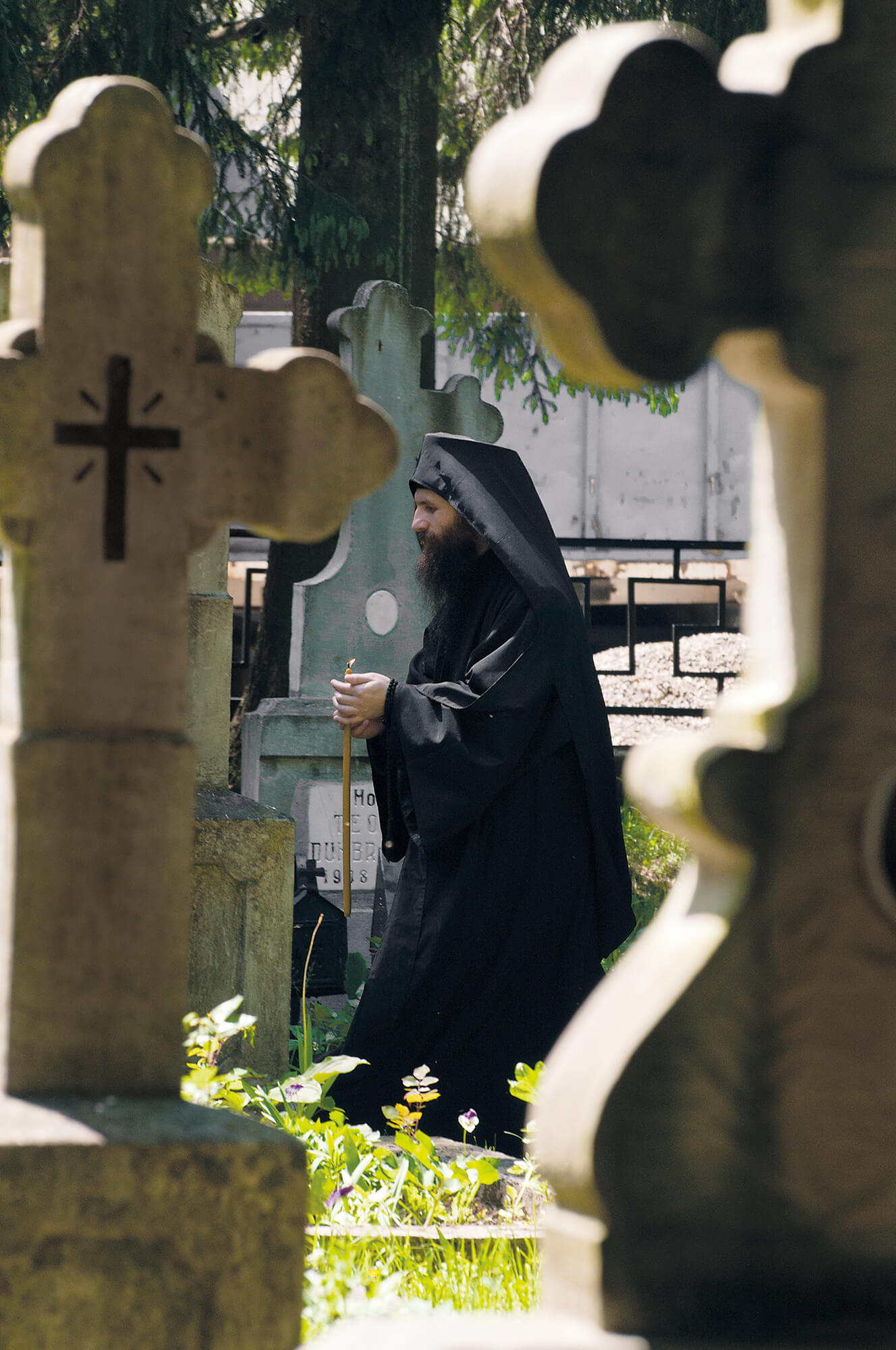“Jesus said unto him, if thou canst believe, all things are possible to him that believeth” (Mark 9:23) and “all things were made by him; and without him was not any thing made that was made” (John 1:3), says our Redeemer Jesus Christ. Believing in the life beyond, believing in the power of creation of God the everlasting, believing that God is living and works in the world to this day, believing that He has governed and governs the world, are questions to which contemporary man finds answers full of doubt.
It is hard today to speak big words of monks and monasticism, in general, considering that, for many people, monks seem to be people living at the edge of society, backwards or uncultured, who have not found a purpose in life or maybe have suffered a great deception. However, for the believer who still has in him a smidgen of his inner God’s aura, for him who has not crumpled his inner God’s visage, we shall state forcefully – and together in spirit with all those who have been struck by the light of God the All-Holy – that without monks and monasticism, the world, “the Christianity of the secular would have collapsed” [1].

Jesus, Most-powerful, Forefathers’ Deliverance!
Jesus, Most-sweet, Patriarchs’ Exaltation!”
(Akathist to our Sweetest Lord Jesus Christ)
Emperors such as Theodosius, Justinian, Alexios Comnenos, issued laws and protected monasticism. “Monastic life and contemplation are a holy thing”, useful to all citizens, “for its cleanliness and mediation”, of prayers said by monks for the common good, said Emperor Justinian in Novella 133. And Alexios Comnenos (1081- 1118) wrote: “I don’t think I have ever done God’s will, which is why I am convinced that all that God has granted me in this life was due to the faithful prayers of my monastic saints and the trust I put in them” [2].
The same lofty awareness of monastic life we can find with Holy Voivod Stephen the Great, who called monks “my prayer givers”, seeing Putna as “his beloved monastery” [3].
Monasticism, founded and rooted in the teaching of Christ the Redeemer and the Holy Fathers, as well as in 2000 years of existence, proved that this way of life is “the art of arts”, “the science of sciences”, just as leading a true Christian life is a “confessional art” [4].

Jesus, take away mine iniquities!
Jesus, pardon mine unrighteousness!”
(Akathist to our Sweetest Lord Jesus Christ)
What is the purpose of a monastic life? In one word, we can say: perfection. It is a thing that is hard to grasp, but even harder to follow and see through.
The words of Christ our Redeemer are clear. “If thou wilt be perfect,” Jesus said unto a young man who wanted to be redeemed, “go and sell that thou hast, and give to the poor, and thou shalt have treasure in heaven: and come and follow me.” (Matthew 21:9). And Jesus also said: “Be ye therefore perfect, even as your Father which is in heaven is perfect.” (Matthew 5:48), and “Thou art God” (Psalms 90:2).
Perfection! Lofty and deep search! However, many, very many have been those who have reached this lofty peak. The heights belong to the eagles, alone are they in admiring the beauty above which they have risen. Going to the one called the Golden Mouthed, we find with him special words about who monks are, what they do and what their purpose is. They are “the host of Christ, the royal flock, the life and living of the powers above” [5], and are “equal to angels” [6], and for us, “our life” and “the luminous incarnation of heavenly things” [7]. “All these come from the good ordering of things found within their soul. Truly they be saints, and among men are they angels” [8].














